The Epic of Gilgamesh Read online
Page 2
Why has he come to me?
His name I will destroy.”
The woman called to the man
Who approaches to him and he beholds him.
“Away! why dost thou [quake]
Evil is the course of thy activity.”
Then he opened his mouth and
Spoke to Enkidu:
“[To have] a family home
Is the destiny of men, and
The prerogative of the nobles.
For the city load the workbaskets!
Food supply for the city lay to one side!
For the King of Uruk of the plazas,
Open the hymen, perform the marriage act!
For Gilgamesh, the King of Uruk of the plazas,
Open the hymen,
Perform the marriage act!
With the legitimate wife one should cohabit.
So before,
As well as in the future.
By the decree pronounced by a god,
From the cutting of his umbilical cord
[Such] is his fate.”
At the speech of the hero
His face grew pale.
About nine lines missing.
[Enkidu] went [in front],
And the courtesan behind him.
He entered into Uruk of the plazas.
The people gathered about him.
As he stood in the streets
Of Uruk of the plazas,
The men gathered,
Saying in regard to him:
“Like the form of Gilgamesh he has suddenly become;
shorter in stature.
[In his structure high], powerful,
..........overseeing
In the land strong of power has he become.
Milk of cattle
He was accustomed to suck.”
Steadily in Uruk .....
The heroes rejoiced.
He became a leader.
To the hero of fine appearance,
To Gilgamesh, like a god,
He became a rival to him.
For Ishtar a couch
Was stretched, and
Gilgamesh [lay down, and afterwards]
In the night he fled.
He approaches and
[Enkidu stood] in the streets.
He blocked the path
of Gilgamesh.
At the exhibit of his power,
About seven lines missing.
Strong…
Gilgamesh
Against him [Enkidu proceeded],
[His hair] luxuriant.
He started [to go]
Towards him.
They met in the plaza of the district.
Enkidu blocked the gate
With his foot,
Not permitting Gilgamesh to enter.
They seized [each other], like oxen,
They fought.
The threshold they demolished;
The wall they impaired.
Gilgamesh and Enkidu
Seized [each other].
Like oxen they fought.
The threshold they demolished;
The wall they impaired.
Gilgamesh bent
His foot to the ground,
His wrath was appeased,
His breast was quieted.
When his breast was quieted,
Enkidu to him
Spoke, to Gilgamesh:
“As a unique one, thy mother
bore thee.
The wild cow of the stall,
Ninsun,
Has exalted thy head above men.
Kingship over men
Enlil has decreed for thee.
Tablet III
An important factor in the subsequent adventures of Gilgamesh is the fact that Enkidu becomes the friend and companion of the hero.
* * * the gods let thee enter
* * * forsaken was
* * * the consort * * *
* * * and he saw it alone,
and he relieved his heart and spoke to his friend.
* * * a dream I dreamed in my night's sleep,
[The stars] of heaven fell upon the earth.
[Frightened] I stood there.
* * * his face became disturbed
* * * like lion's claws were his nails
* * * the dream strengthened me * * *
The second fragment was a dialogue between Shamash, the sun god, and Enkidu, in consequence of which Enkidu's "angry heart became quieted." It seems that Shamash induced Enkidu, who is anxious to return to his mountain home, to remain. The Shamhat again plays a prominent role, and we hear of the promise to Enkidu of royal honors, the friendship and brotherly love of Gilgamesh.
Says Shamash:
"Come, and on a fine, grand couch,
on a fine couch he [Gilgamesh] will let thee recline.
He will place thee upon a couch, a seat to the left.
The kings of the earth shall kiss thy feet.
The people of Uruk shall whine before thee * * *
and the nations shall work for thee.
* * * after thee shall be carried, whatever there be
* * * in the midst thereof he shall encamp."
Enkidu listened to the word of Shamash, the warrior hero,
* * * his angry heart became quieted.
The gods have a purpose in view in bringing about friendship between Enkidu and Gilgamesh. They relate the battle of the city of Uruk against the Elamitic despot Humbaba, ending in the death of the latter and the enthronement of Gilgamesh as King of Uruk. The gods, being deeply interested in the destruction of Humbaba and the end of the rule of the hostile god [giant] Humba, take part in the fight. It is evident that this poetic narrative is simply the mythical representation of a great national upheaval, by means of which an Elamitic dynasty was overthrown and a Babylonian rule established.
Tablet IV
This tablet describes the preparation for the capture of the fortress of the Elamitic king, Humbaba. Enkidu stands before the king of the gods [Marduk], speaking probably of Humbaba, whom he and Gilgamesh intended to kill, and whose corpse vultures may devor; they asked the god to be favorable to their fight.
We did look after thee, O king [of the gods].
Now look thou also after us.
Gilgamesh then advises Enkidu to go
To the lofty palace of the great queen, who knoweth all.
[Before] Shamash he sacrificed a smoke-offering,
poured out a drink-offering;
lifted up before Shamash his hand, [praying]:
"Why hast thou disquieted the heart of Gilgamesh?
Now thou hast taught him, and
a far road he travels unto Humbaba.
An unknown fight he is about to enter,
To an unknown war he is about to set forth.
From the day that he goeth, until he returneth again,
until he comes to the [splendid] cedar wood,
until he shall have killed Humbaba the despot,
all the many evils which shall befall him, shall ruin him.
On the day when thou * * *
The preparation for the great fight.
The forces of the country assembled together;
the army completed its preparations;
and the heroes put on their amour.
Then the two friends set out together.
In order that the cedar wood remains intact, Bel has made it a terror for the people.
The roaring of Humbaba was like that of a storm cyclone;
his mouth was [full of] blasphemy, his breath [killing]
like hot wind;
* * * hears a roaring in the forest;
whosoever descends into his park.
In order that the cedar forest remain intact, Bel has
made it a terror for the people.
Whosoever enters it, pestilence will overtake him.
And Gilgamesh spoke unto Enkidu, and said:
a favourable dream,
a spl
endid dream,
in which he saw the corpse of Humbaba. Then they set out on their way in the morning;
every twenty double leagues they took a meal;
every thirty double leagues they took a rest.
Before Shamash they dug a hole.
Then Gilgamesh went up to * * *
and poured his sacrificial meal into the hole [saying]:
"Mountain, bring a dream unto Enkidu!
Let him see dream-visions, O Shamash."
Then they go to sleep. About midnight Gilgamesh awakes, arises, and speaks to his friend Enkidu:
"My friend, hast thou called me?" Then he tells him of a
third dream that he had seen.
The dream that I dreamed was very terrible;
heaven thundered, earth quaked;
day grew dark, darkness came up;
lightning set in, fire flared up
sated [with destruction] and filled with death.
Then suddenly the light darkened, the fire was quenched
* * * fell down, turned into smoke * * *”
Enkidu heard this dream and said to him:
The rest of this tablet is broken away.
Tablet V
The heroes are in the sacred forest, surrounding the stronghold of Humbaba.
They had apparently forced open its gate:
There they stood, lofty arose the forest, and
[astonished] they gazed at the height of the cedars
and at the entrance of the cedar wood,
where Humbaba wanted to walk with lofty steps.
Ways were laid out and paths well kept.
They saw the cedar hill, the dwelling of gods, the sanctuary
of Ernini. In front of the hill [mountain] a cedar stood of great
splendor, fine and good was its shade, filling with gladness [the heart].
The remainder of the column is broken off, but it probably gave a further description of the palace and its surroundings.
The corpse to be devoured by the vultures.
The heroes recount their former glorious deeds, a favorable indication for the success of their imminent battle with Humbaba.
Tablet VI
The celebration of the victory of Gilgamesh, and his repulse of Ishtar's love advances.
He cleansed his weapons, he polished his arms.
He took off the amour that was upon him. He put away
his soiled garments and put on clean raiment;
clothed himself with his ornaments, put on his diadem.
Gilgamesh placed upon his head the crown and put on his diadem.
To win the favor and love of Gilgamesh, Ishtar, the lofty goddess desired [and said unto him]:
"Come, Gilgamesh, be thou my spouse,
Give, O give unto me thy manly strength.
Be thou my husband, let me be thy wife, and I will set thee in a chariot (embossed) with precious stones and gold,
with wheels made of gold, and shafts of sapphires.
Large kudanu-lions thou shalt harness to it.
Under sweet-smelling cedars thou shalt enter into our house.
And] when thou enterest into our house
Thou shalt sit upon?] a lofty throne, and people shall kiss thy feet;
kings and lords and rulers shall bow down before thee.
Whatever mountain and country produces, they shall bring to thee as tribute.
* * *] thy sheep shall bear twin-ewes.
* * *] mules they shall bring as tribute.
Thy [majesty] shall sit upon a chariot that is splendid,
[drawn] by a span that has no equal.
But Gilgamesh opened his mouth and spoke unto her; said unto the lofty goddess Ishtar:
The beginning lines of his speech are almost lost, only a few fragments being preserved. Gilgamesh refused the proffered love of Ishtar, reminding her that all her former lovers have come to grief through her, and said that he was not willing to chare their fate.
"Where is thy husband Tammuz, who was to be forever?
What, indeed, has become of the allallu-bird * * *?
Well, I will tell thee plainly the dire result of thy coquetries.
To Tammuz, the husband of thy youth,
thou didst cause weeping and didst bring grief upon him every year.
The allallu-bird, so bright of colors, thou didst love;
But its wing thou didst break and crush,
so that now it sits in the woods crying: 'O my wing!'
Thou didst also love a lion, powerful in his strength,
seven and seven times didst thou dig a snaring pit for him.
Thou didst also love a horse, pre-eminent in battle,
but with bridle, spur, and whip thou didst force it on,
didst force it to run seven double-leagues at a stretch.
And when it was tired and wanted to drink, thou still didst force it on,
thereby causing weeping and grief to its mother Si-li-li.
Thou didst also love a shepherd of the flock * * *
who continually poured out incense before thee,
and, for thy pleasure, slaughtered lambs day by day.
Thou didst smite him, and turn him into a tiger,
so that his own sheep-boys drove him away,
and his own dogs tore him to pieces.
Thou didst also love a farmer, a gardener of thy father,
who continually brought unto thee dainties,
and daily adorned thy table for thee.
Thine eye thou didst cast on him and turn his mind, saying:
'Oh, my farmer boy, let us enjoy thy manly strength.
Let thy hand come forth and take away my virginity.’
But the farmer spoke unto thee and said:
'Me! What is this that thou askest of me?
Mother, thou hast not baked, and I will not eat;
The food that I shall eat is bad and bitter,
and it is covered with cold and numbness.'
And when thou didst hear such words,
thou didst smite him and change him into a cripple
And didst thus compel him to lie on a couch,
so that he could no more rise up from his bed.
And now thou wouldst also love me; but like unto them I would fare.
When Ishtar heard such words
she became enraged, and went up into heaven,
and came unto Anu [her father], and
To Antum [her mother] she went, and thus spoke [unto them]:
"My father, Gilgamesh has insulted me;
Gilgamesh has upbraided me with my evil deeds,
my deeds of evil and of violence."
And Anu opened his mouth and spoke
said unto her, the mighty goddess Ishtar:
"Thou shalt not remain so disconsolate,
even though Gilgamesh has upbraided thee with thy evil deeds,
thy deeds of evil and of violence."
And Ishtar opened her mouth and said,
she spoke unto Anu, her father:
"My father, create [for me] a heaven-bull."
The following lines have come down in a very mutilated condition; and the meaning can only be surmised.The lines remind us of the threat of Gilgamesh, spoken before the ocean palace and especially of the analogous conditions found in the account of the "Descent of Ishtar into the Netherworld," where the courageous goddess in her wrath forces entrance to the Netherworld.
They hunted him and Enkidu [attacked] the heaven-bull,
* * * and grasped him by his heavy tail.
On an old Babylonian cylinder representing the fight we see the bull standing on its hind feet, Enkidu holding the monster by its head and tail, while Gilgamesh plunges the dagger into its heart. We can also gather from the remains of the lines that three hundred heroes took part in the fight. After the heroes had killed the bull and had thus satisfied their hearts, they brought unto Shamash, the sun god, a thank offering. The narrative then continues:
Then Ishtar w
ent up to the wall of Uruk, the strong-walled;
she uttered a piercing cry and broke out into a curse, [saying]:
"Woe to Gilgamesh, who thus has grieved me,
and has killed the heaven-bull."
But Enkidu, hearing these words of Ishtar,
tore out the right side of the heaven-bull,
and threw it into her face, (saying):
"And thus I will, indeed, defeat thee;
and I will do unto thee even as I have done to him;
I will hang its heart upon thy side, forsooth."
Then Ishtar gathered her followers, that ruin men,
the hierodules and the sacred prostitutes.
Over the right side of the heaven-bull she wept and lamented.
But Gilgamesh assembled the people, and all his workmen.
The workmen admired the size of its horns.
Thirty minas of precious stones was their value;
half of an inch in size was their thickness.
Six measures of oil they both could hold.
For the anointing of his god Lugal-tur-da8 he dedicated it.
He brought the horns and hung them up in the shrine of his lordship.
Then they washed their hands in the river Euphrates,
took the road, and set out [for the city],
and rode through the streets of the city of Uruk.
The people of Uruk assembled and looked with astonishment [at the heroes?].
Gilgamesh then spoke to the servants of [his palace]
and cried out unto them, [saying]):
"Who is glorious among the heroes?
Who shines among the men?"
"Gilgamesh is glorious among the heroes,
Gilgamesh shines among the men!"
Lines 204 to 206 are lost.
and Gilgamesh held a joyful feast in his palace.
Then the heroes slept, stretched out upon their couches.
And Enkidu slept, and saw a vision in his sleep.
He arose (in the morning) and "solved" the dream,
and spoke unto Gilgamesh thus:
"My friend, wherefore have the great gods thus taken counsel?"
Tablet VII and VIII
Only a few fragments have been preserved. Tablet VII began with Enkidu's account of his dream on the morning after the victory-jubilee in Uruk, and closed with the death of that hero, brought about by the goddess Ishtar. Tablet VIII speaks of the sickness and death of Enkidu.

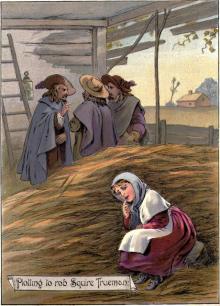 Goody Two-Shoes
Goody Two-Shoes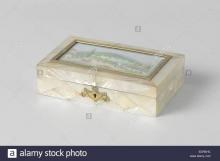 The Pearl Box
The Pearl Box And when you gone...
And when you gone... Stranger At The Other Corner
Stranger At The Other Corner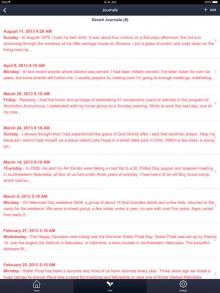 My Young Days
My Young Days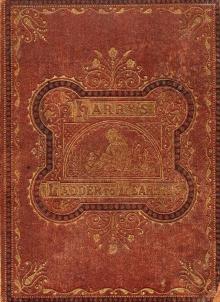 Harry's Ladder to Learning
Harry's Ladder to Learning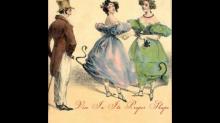 Vice in its Proper Shape
Vice in its Proper Shape_preview.jpg) Promise (the curse)
Promise (the curse)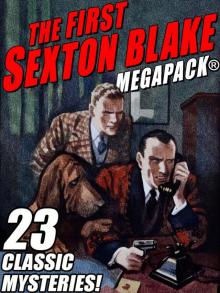 The First Sexton Blake
The First Sexton Blake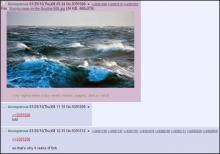 Golden Moments
Golden Moments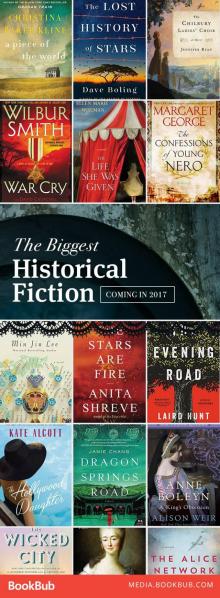 Hildebrand; or, The Days of Queen Elizabeth, An Historic Romance, Vol. 2 of 3
Hildebrand; or, The Days of Queen Elizabeth, An Historic Romance, Vol. 2 of 3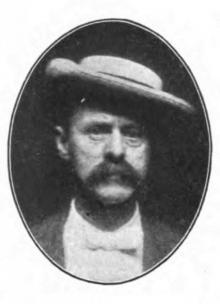 The Ice Queen
The Ice Queen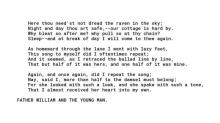 Phebe, the Blackberry Girl
Phebe, the Blackberry Girl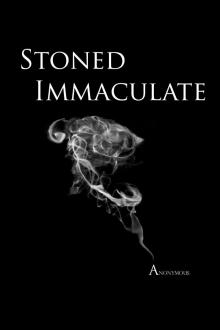 Stoned Immaculate
Stoned Immaculate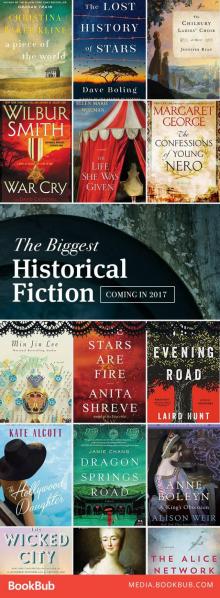 Hildebrand; or, The Days of Queen Elizabeth, An Historic Romance, Vol. 3 of 3
Hildebrand; or, The Days of Queen Elizabeth, An Historic Romance, Vol. 3 of 3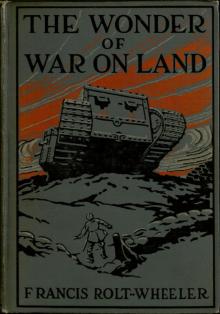 The Wonder of War on Land
The Wonder of War on Land Breaking Bailey
Breaking Bailey The Little Girl Who Was Taught by Experience
The Little Girl Who Was Taught by Experience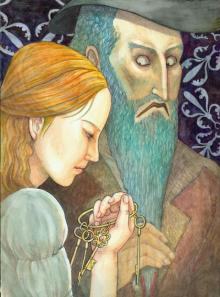 The Popular Story of Blue Beard
The Popular Story of Blue Beard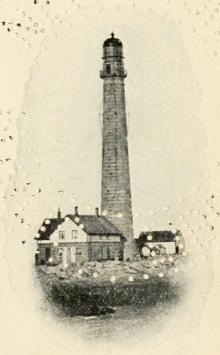 The Life Savers: A story of the United States life-saving service
The Life Savers: A story of the United States life-saving service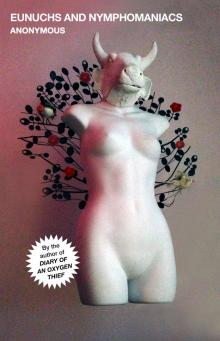 Eunuchs and Nymphomaniacs
Eunuchs and Nymphomaniacs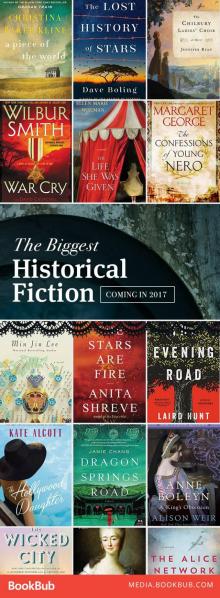 Hildebrand; or, The Days of Queen Elizabeth, An Historic Romance, Vol. 1 of 3
Hildebrand; or, The Days of Queen Elizabeth, An Historic Romance, Vol. 1 of 3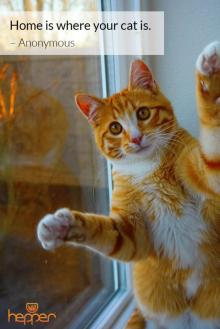 Kitty's Picnic, and Other Stories
Kitty's Picnic, and Other Stories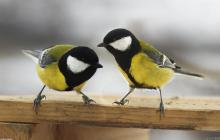 Two Yellow-Birds
Two Yellow-Birds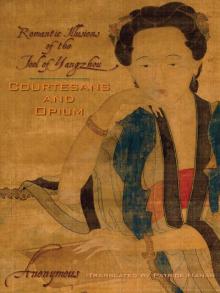 Courtesans and Opium
Courtesans and Opium The Emigrant's Lost Son; or, Life Alone in the Forest
The Emigrant's Lost Son; or, Life Alone in the Forest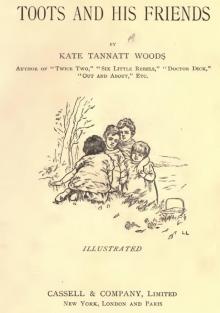 Toots and His Friends
Toots and His Friends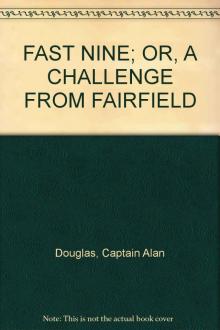 Fast Nine; or, A Challenge from Fairfield
Fast Nine; or, A Challenge from Fairfield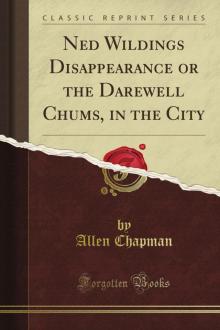 Ned Wilding's Disappearance; or, The Darewell Chums in the City
Ned Wilding's Disappearance; or, The Darewell Chums in the City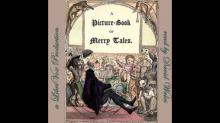 A Picture-book of Merry Tales
A Picture-book of Merry Tales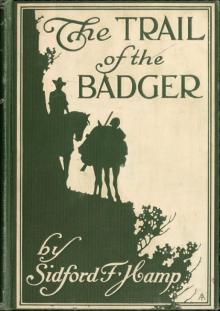 The Trail of The Badger: A Story of the Colorado Border Thirty Years Ago
The Trail of The Badger: A Story of the Colorado Border Thirty Years Ago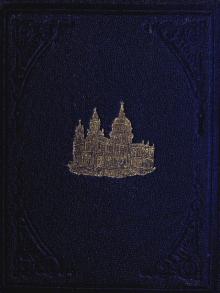 Peter Parley's Visit to London, During the Coronation of Queen Victoria
Peter Parley's Visit to London, During the Coronation of Queen Victoria The Rainbow, After the Thunder-Storm
The Rainbow, After the Thunder-Storm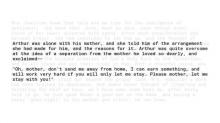 Arthur Hamilton, and His Dog
Arthur Hamilton, and His Dog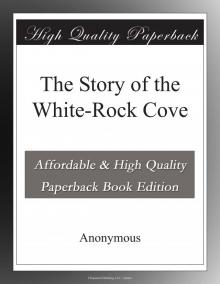 The Story of the White-Rock Cove
The Story of the White-Rock Cove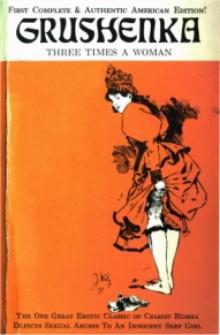 Grushenka. Three Times a Woman
Grushenka. Three Times a Woman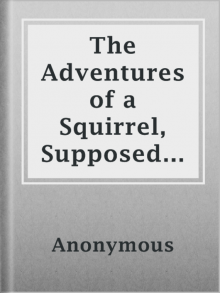 Adventures of a Squirrel, Supposed to be Related by Himself
Adventures of a Squirrel, Supposed to be Related by Himself Falling in Love...Again
Falling in Love...Again The Colossal Camera Calamity
The Colossal Camera Calamity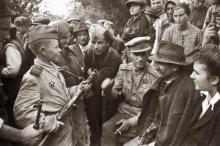 Child of the Regiment
Child of the Regiment Elimination Night
Elimination Night The Kingfisher Secret
The Kingfisher Secret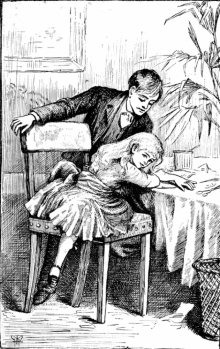 Left to Ourselves; or, John Headley's Promise.
Left to Ourselves; or, John Headley's Promise.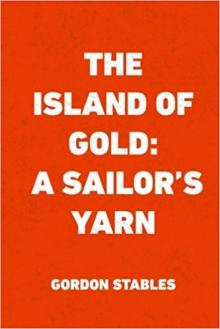 The Island of Gold: A Sailor's Yarn
The Island of Gold: A Sailor's Yarn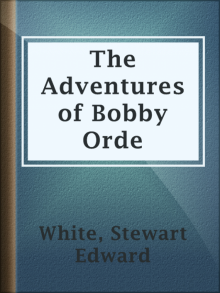 Adventures of Bobby Orde
Adventures of Bobby Orde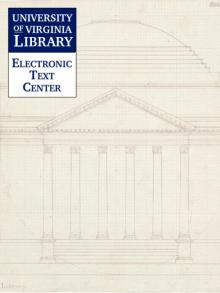 Twain, Mark: Selected Obituaries
Twain, Mark: Selected Obituaries When Love Goes Bad
When Love Goes Bad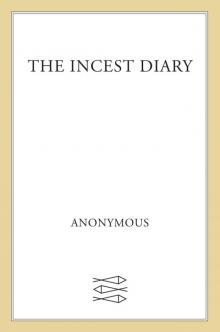 The Incest Diary
The Incest Diary Calling Maggie May
Calling Maggie May The Infidelity Diaries
The Infidelity Diaries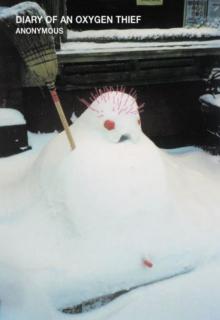 Diary of an Oxygen Thief (The Oxygen Thief Diaries)
Diary of an Oxygen Thief (The Oxygen Thief Diaries) ARABELLA
ARABELLA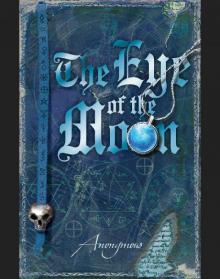 The Eye of the Moon
The Eye of the Moon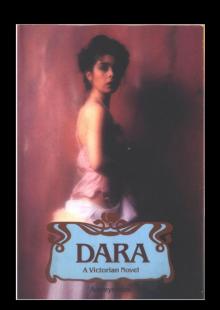 Dara
Dara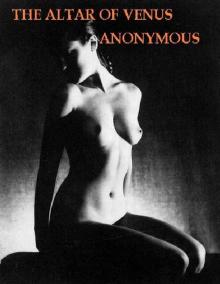 THE ALTAR OF VENUS: The Making of a Victorian Rake
THE ALTAR OF VENUS: The Making of a Victorian Rake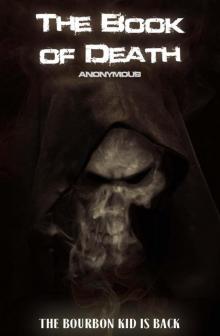 The Book of Death
The Book of Death The Book of David
The Book of David The Devil's Graveyard
The Devil's Graveyard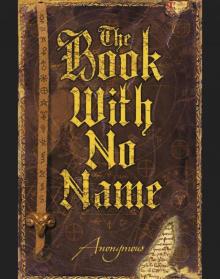 The Book With No Name
The Book With No Name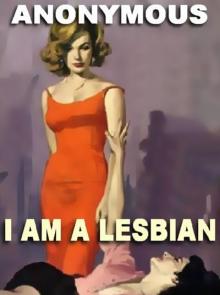 I Am A Lesbian
I Am A Lesbian Njal's Saga
Njal's Saga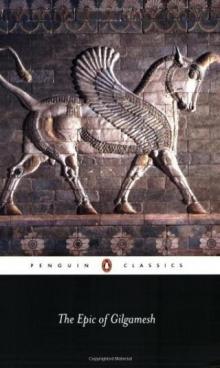 The Epic of Gilgamesh
The Epic of Gilgamesh Darling
Darling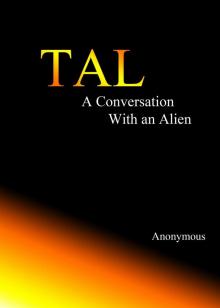 Tal, a conversation with an alien
Tal, a conversation with an alien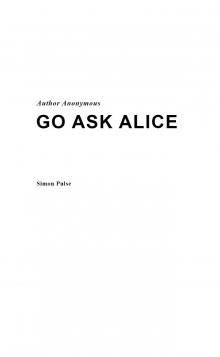 Go Ask Alice
Go Ask Alice Aphrodizzia
Aphrodizzia The Campus Trilogy
The Campus Trilogy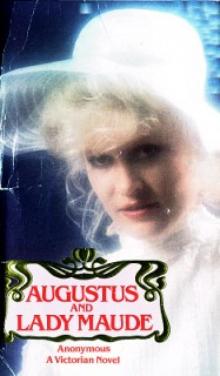 Augustus and Lady Maude
Augustus and Lady Maude Lucy in the Sky
Lucy in the Sky Sight Unseen
Sight Unseen Pleasures and Follies
Pleasures and Follies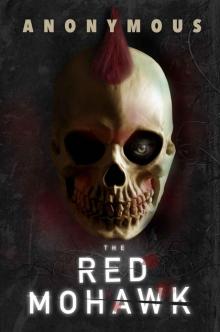 The Red Mohawk
The Red Mohawk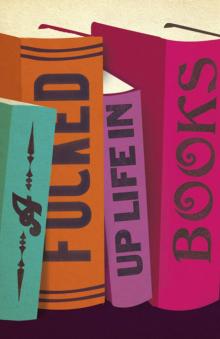 A Fucked Up Life in Books
A Fucked Up Life in Books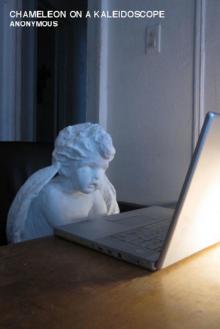 Chameleon On a Kaleidoscope (The Oxygen Thief Diaries)
Chameleon On a Kaleidoscope (The Oxygen Thief Diaries)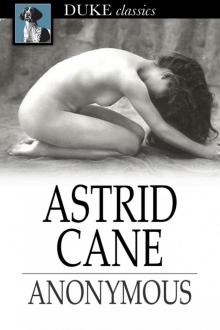 Astrid Cane
Astrid Cane BEATRICE
BEATRICE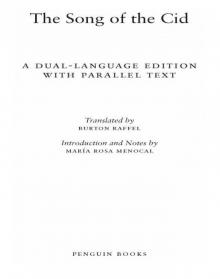 The Song of the Cid
The Song of the Cid